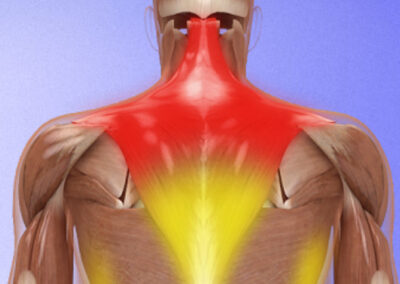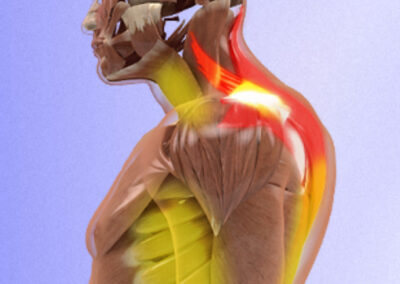Understand How Poor Posture Weakens and Damages Your Muscles
Upper Cross Syndrome Part I
If you’re like most people, you don’t think too much about poor posture until you start feeling some aches and pains in your back or neck. Slouching while standing or sitting or spending too many hours hunched over a computer or mobile device can misalign your musculoskeletal system. When that happens, it causes a chain-reaction effect, stressing your muscles and spine. In particular, Upper Cross Syndrome (UCS) is a common problem that relates to poor posture.
What Is Upper Cross Syndrome (UCS)?
UCS, also called proximal or girdle crossed syndrome, occurs when someone makes a habit of not standing or sitting up straight. When you do this, you’re essentially retraining your muscles to move into an abnormal position.
Try to think of it this way. When you do a heavy physical workout, your muscles become sore due to overuse. With regular workouts, your muscles get stronger. It makes sense that the reverse is true.
At first, when you have poor posture, the muscles in your neck, shoulders, and chest become overactive and strained. That causes the muscles in the front of your chest (major and minor pectoralis) to tighten and become shorter. Over time, the surrounding counter muscles are underused causing them to become weaker. What’s more, the overactive muscles begin to overlap with the weaker muscles causing an X shape. Every time you don’t sit or stand up straight, the problem gets worse.
A Closer Look at the Root of the Problem
When you have poor posture, you tend to push your head forward. People commonly do this without realizing it. To prevent or minimize the effects of UCS, pay closer attention to your posture while doing these activities:
- Watching television
- Playing video games
- Reading
- Bike riding
- Driving
- Using a laptop or mobile device
Do you notice that your shoulders rise and roll forward?
Poor posture is one culprit of UCS. In a smaller set of people, UCS can be caused by congenital defects or some type of injury.
What Are the Effects of Upper Cross Syndrome?
As your muscles weaken, you’re likely to feel the strain at the base of your neck and tightness or weakness in the low, middle part of your shoulders. You may also experience some of these symptoms:
- Numbness or tingling in your upper arms
- Loss of range of motion in your neck or shoulders
- Pain in your upper arms
- Headaches
- Difficulty sitting, reading, or driving for long periods
The good news is that there are effective treatments for UCS. Your Fort Collins chiropractor is a good place to start to get a clear diagnosis and understanding of the problem that’s causing your shoulder and neck pain.
An exam and consultation may be just what you need to help retrain yourself on how to improve your posture to relieve the strain you’re putting on your body and move it in the direction of strengthening and healing it. That’s exactly what we’ll be talking about in Upper Cross Syndrome Part II.


